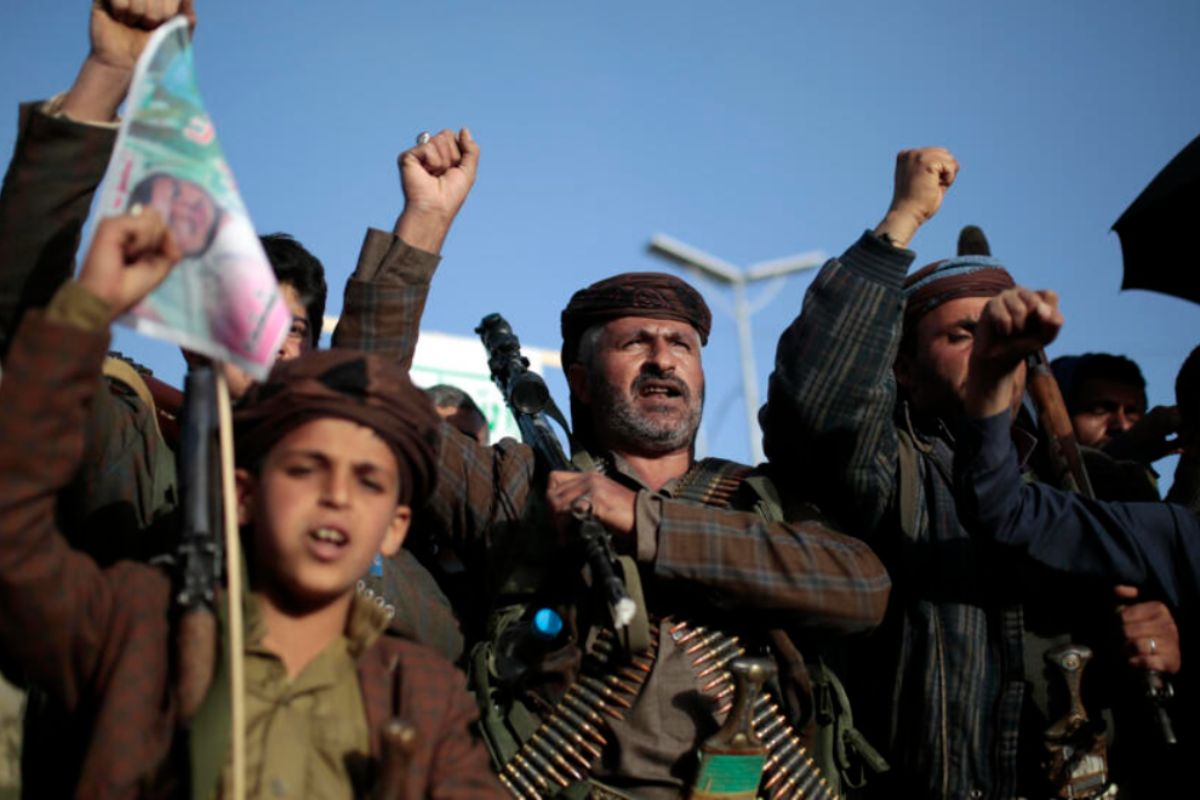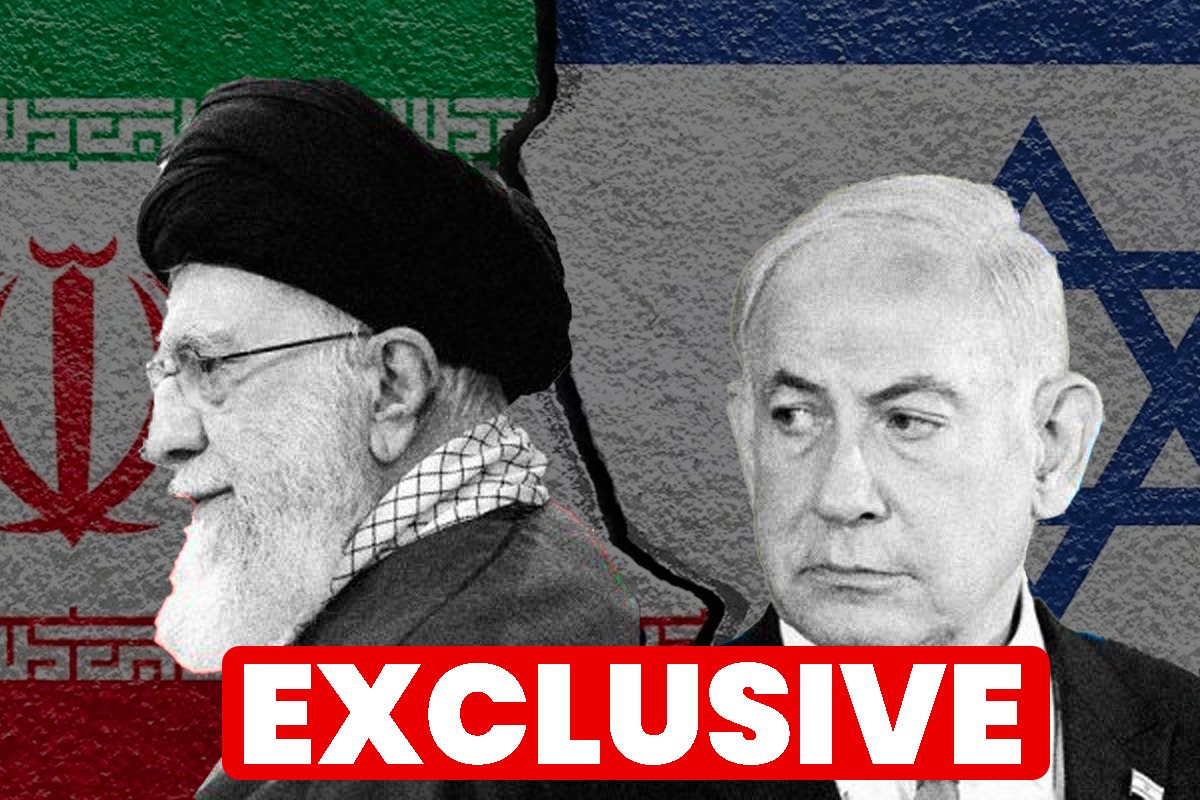NEW DELHI: The BRICS leaders have decided to extend invitations to five additional countries for membership in their alliance. South African President Cyril Ramaphosa, the host of the three-day summit in Johannesburg in August 2023, announced that Egypt, Ethiopia, Iran, Saudi Arabia, and the United Arab Emirates (UAE) have received invitations to join the BRICS. The new members are expected to officially join the alliance on January 1, 2024.
During an exclusive interview with The New Indian, Anoush Ehteshami, Iranian economic expert and Professor of International Relations at the School of Government and International Affairs, Durham University, delved into the historical regional differences among the Middle Eastern countries and their coexistence within the BRICS, as well as Iran’s involvement in the Israel-Hamas conflict.
Iran’s ‘Indirect’ Role In Israel-Hamas Quagmire:

Iran is considered a significant adversary of Israel and is the primary source of military aid and training for Hamas. The White House has accused Iran of being “complicit” in the terrorist attack by Hamas on October 7, citing the provision of training, funding, and support. However, US officials have also stated that they lack evidence of Iran‘s direct involvement in planning or executing the attack.
Ehteshami, on the other hand, admitted the “indirect” involvement of Iran in exacerbating the Israel-Hamas conflict. During the interview, he revealed that although the Gaza war is not something that Iran is directly supporting and or wants to be involved with, however, by leveraging groups like the Houthis and Hashd al-Shaabi in Iraq, they exert pressure on the West and Israel, impacting sea lanes.
Also Read: Do we want pseudo-military organisation: Iran expert on Pakistan’s BRICS aspirations
Similarly, through Hezbollah in Lebanon, they influence Israel. Nevertheless, while these groups may disrupt international shipping or affect Israel’s border communities in the Levant area, Iran prefers not to be directly engaged.
Deliberating on whether Iran will gain a strategic advantage in the war by joining the BRICS alliance, he said, “In the context of BRICS, Egypt, the UAE, and Saudi Arabia all maintain diplomatic relations with Israel and are engaged in talks to strengthen ties. These countries are opposed to any interference by Iran in their relations or evolving dialogues with Israel.
“Moreover, while Iran has supported Hamas, the Palestinian cause is primarily seen as an Arab-Muslim issue, and Arab nations resent Iran championing this cause. Despite their concerns about Israel’s actions in Gaza, these countries within BRICS are unlikely to accept Iran pushing an agenda that goes against the interests of the UAE, Saudi Arabia, Egypt, and the broader Arab world. Additionally, due to the conflicting positions of China and India on the Gaza conflict, I don’t see Iran developing a cohesive strategy within BRICS+.”
Regional Differences In Middle-East:

The Middle East, encompassing diverse nations such as Saudi Arabia, Iran, and the UAE, has a history of regional differences that have shaped their distinct identities. Iran and Saudi Arabia have been involved in a proxy struggle for dominance in the Middle East and other Muslim regions, often characterised as a contemporary cold war. This conflict spans various dimensions, including geopolitical, economic, and sectarian influence, causing fractures in international alliances and fuelling ongoing wars in the region.
However, Iranian President Ebrahim Raisi, despite being a hardliner, in March 2023, reestablished Tehran’s diplomatic connections with Riyadh, marking a significant shift after seven years of severed ties. According to Ehteshami, even though it remains to be seen if the inclusion of these Arab countries in the BRICS+ sends a clear signal about their growing independence in foreign relations, the move, for the time being, carries more diplomatic and political significance.
He explained, “There are now three Middle Eastern countries in BRICS+, which is almost half of the group. These countries, including Egypt, the UAE, and Saudi Arabia, bring significant geopolitical influence. Saudi Arabia is the most dominant, having the largest land, economy, and global network. However, there are historical tensions among these nations, especially with Iran. China has helped ease tensions between Iran and Saudi Arabia, but issues remain. Including these Middle Eastern countries in BRICS+ raises questions about potential conflicts and how the established members will handle them, given their different agendas and interests.
Also Read: India-Iran are bedfellows: Tehran expert on BRICS+ bond | EXCLUSIVE
“Iran and Egypt do not have diplomatic relations. While they talk about it, they still haven’t restored ties. Iran also has a territorial dispute with the UAE, right? They don’t even agree on the name of the waterway that they share. So, you know, there are profound differences between them. Moreover, Iran has always had issues with Saudi Arabia. Although in March, China brokered a new rapprochement between the two countries, that doesn’t mean that their problems have gone away. Disputes persist over Yemen, Iraq, Lebanon, Palestine, security of the waterway, religion, and relations with India, and China.
“So, putting them into the BRICS basket creates unforeseen tensions and crises that the permanent members are not yet ready to address. Nevertheless, the presence of three Arab countries signals that they want more independence in their foreign relations, and while there might be economic benefits in the future, currently, the move seems more about diplomatic and political significance.”











